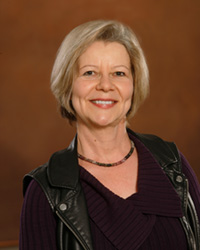
Start up
Passion. Potential. Pitches. Don't miss any of the 2025 New Venture Challenge excitement.
Tune in Friday, April 11 at 1 p.m. for great ideas and fierce competition. Then, join the judges, mentors, spectators and teams as they see who is going home with thousands of dollars in venture financing. The awards broadcast begins at 6:30 p.m. and one team will walk away as the overall best venture.
Central Michigan University’s College of Business Administration is the home of the Isabella Bank Institute for Entrepreneurship and the first Department of Entrepreneurship in the state of Michigan. We are a student-centric hub where experiential, curricular, and external entrepreneurial opportunities intersect.
Our mission is to maximize student success by fostering a campus-wide entrepreneurial mindset that promotes inter-disciplinary collaboration and the creation of new ventures.
We aim to create innovative programming, boost cross-campus and ecosystem collaboration and provide a comprehensive mentoring program.
Our institute provides extracurricular opportunities and is open to all undergraduate and graduate CMU students.
Are you interested in becoming an entrepreneur?
Every journey is unique. Explore the opportunities that interest you.
Dr. Mona Sirbescu, a professor in the Department of Earth and Atmospheric Sciences at Central Michigan University, has been awarded a prestigious fellowship from the Research Foundation – Flanders (FWO), one of Belgium’s most competitive international mobility programs. She is currently en route to KU Leuven, one of Europe’s leading research institutions, where she will collaborate with scientists to advance groundbreaking research into the formation of lithium-rich pegmatite deposits.
 The six-week fellowship will allow Dr. Sirbescu to explore the role of thin, compositional “boundary layers” in pegmatite magmas, an area that could revolutionize our understanding of how critical minerals such as lithium, tantalum, and beryllium are concentrated in nature. These minerals are essential for technologies ranging from electric vehicles and electronics to aerospace systems.
The six-week fellowship will allow Dr. Sirbescu to explore the role of thin, compositional “boundary layers” in pegmatite magmas, an area that could revolutionize our understanding of how critical minerals such as lithium, tantalum, and beryllium are concentrated in nature. These minerals are essential for technologies ranging from electric vehicles and electronics to aerospace systems.
“One of the hypotheses I’m testing is that these boundary layers, formed around rapidly growing crystals, play a key role in concentrating critical minerals,” Sirbescu explained. “This fellowship gives me the opportunity to explore this topic using advanced tools and working alongside a dynamic research team.”
At KU Leuven’s Department of Earth and Environmental Sciences, Dr. Sirbescu will use high-resolution Raman spectroscopy and other microscopy techniques to study both lab-grown and natural pegmatite samples. Her work will include field specimens from the mineral-rich Black Hills of South Dakota and regions of Maine, two areas known for their lithium-bearing pegmatites, though not all such rocks are mineralized.
"Why aren’t all pegmatites rich in critical minerals? That’s the fundamental question," Sirbescu said. “Our lab experiments have already shown that boundary layers can form rapidly and may trigger crystallization of ore minerals like tantalum at the tips of fast-growing crystals. I want to know how this translates to the real world.”
A significant part of her research also focuses on how unwanted chemical components are pushed away from crystals during rapid growth, and how tiny water-rich bubbles, often seen trapped in natural crystals, might influence the enrichment and accumulation of key elements.
Sirbescu’s collaboration with KU Leuven began several years ago, when she hosted a visiting postdoctoral researcher from the Belgian university at CMU. The relationship has since evolved to include co-advising doctoral students and joint analytical work on samples collected by Sirbescu. “This fellowship is the next step in a productive partnership that I hope will continue to yield high-impact publications and future grant opportunities,” she said.
Her work builds upon decades of research into fluid inclusions and mineral zoning within pegmatites, but the integration of experimental data and advanced field techniques marks a new phase. Dr. Sirbescu hopes that her findings will help improve lithium exploration strategies around the globe.
“A robust, quantitative model of ore formation would enable geologists to assess a pegmatite’s economic potential much more quickly using field tools like portable XRF and laser-induced breakdown spectroscopy,” she noted.
As the demand for lithium and other critical minerals rises with the global push for clean energy technologies, Sirbescu believes that her research could support more sustainable mining practices. “If we understand how and why certain pegmatites concentrate multiple valuable elements, mining operations could recover them more efficiently, reducing waste and environmental impact,” she said.
While the scientific goals of the fellowship are ambitious, Dr. Sirbescu is equally enthusiastic about the cultural and collaborative opportunities it offers. “I’m incredibly honored to be selected by the FWO, and I’m typing this from the airport, on my way to Leuven!” she said with a smile.
The Research Foundation – Flanders (FWO) supports fundamental and strategic scientific research through rigorous peer review and promotes international collaboration. More information can be found on the FWO Wikipedia page.

Explore special opportunities to learn new skills and travel the world.

Present your venture and win BIG at the New Venture Challenge.

Boost your entrepreneurial skills through our workshops, mentor meetups and pitch competitions.

Learn about the entrepreneurship makerspace on campus in Grawn Hall.

Present a 2-minute pitch at the Make-A-Pitch Competition and you could win prizes and bragging rights!

Connect with mentors and faculty who are here to support the next generation of CMU entrepreneurs.

Are you a CMU alum looking to support CMU student entrepreneurs? Learn how you can support or donate to the Entrepreneurship Institute.